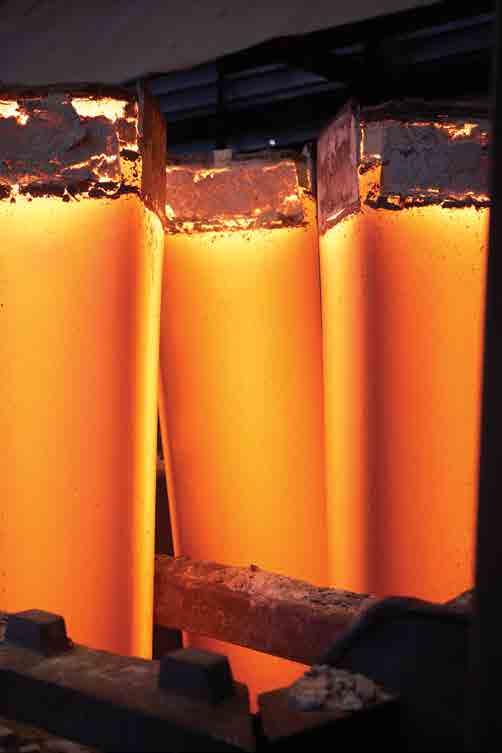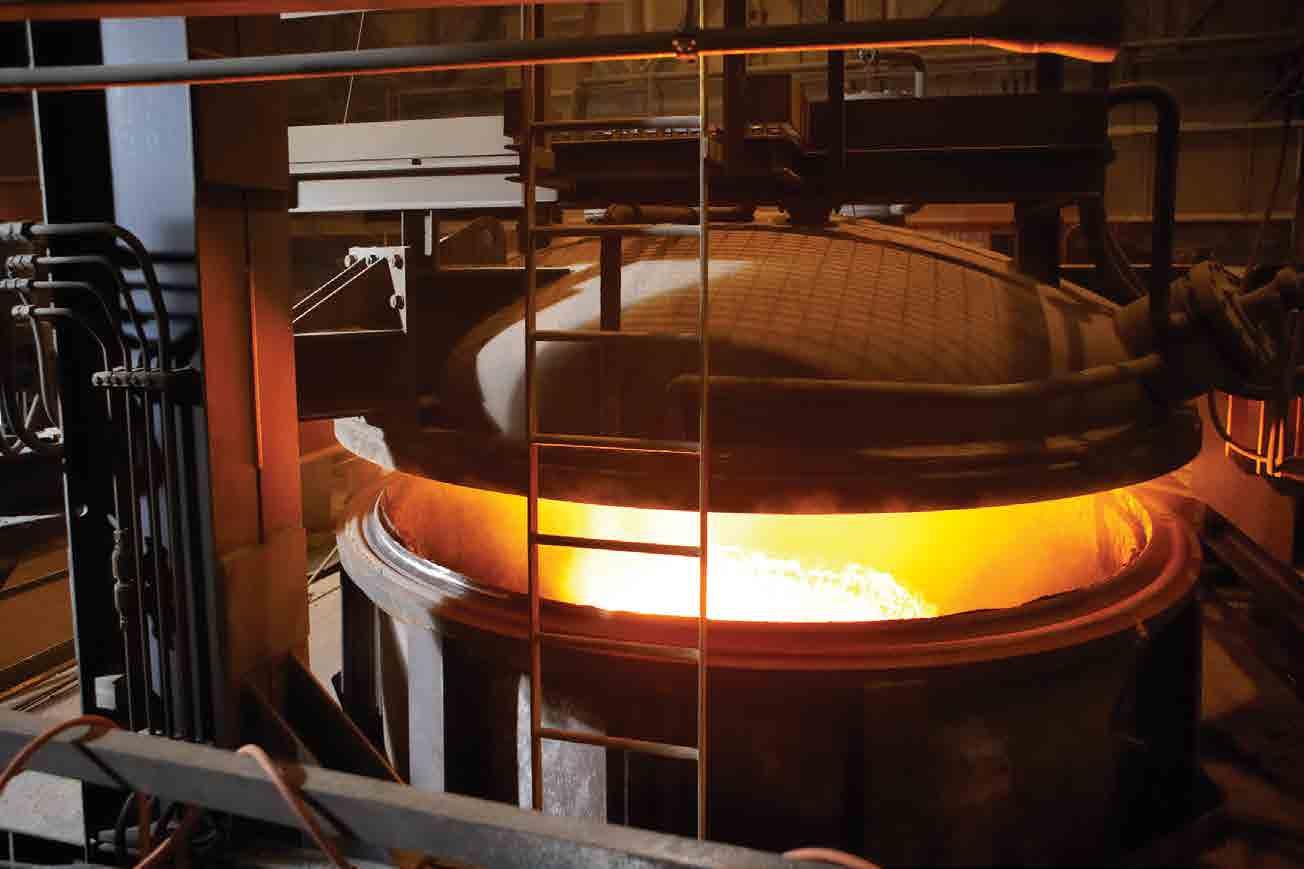
4 minute read
Innovators in high grade steel Nedstaal
INNOVATORS IN
HIGH GRADE STEEL
Netherlands-based Nedstaal is an innovative producer specialising in various types of steel cut to size. Abigail Saltmarsh looks at its plans for growth.


Over the last 12 years, steel producer Nedstaal has grown from an operation with just one customer to a company with more than 150. Now, says CEO Bert Bult, the company – which works with high-grade customised steel and offers ingots and blooms that are cut to size – is seeking further substantial growth as it creates extra capacity to meet even more demand.
“There is so much growth potential for us just with our existing customers,” he says. “By adding extra capacity and with a focus on efficiency and quality, we expect to grow from a company producing 150 tonnes a year to one producing 190 tonnes.
“We operate in a very niche market and have a very specific product range. If someone wants high volumes then we are not the company for them but if they want our more specialised service then we can help.”
He adds: “Because there is a demand for our products, we expect to expand by about 20 per cent over the next three years.” The highest quality
Nedstaal was founded in 1938 as a subsidiary of NKF, a manufacturer of strips and wires used in electrical cables. In the mid 1960s, the company was taken over by Philips and was later incorporated into Thyssen Stahl AG. In 1998, it underwent a management buyout by Glimmerveen and the H2 Investment Group.
Today, the operation produces steel for processing companies forging or rolling sub-assemblies into semi-finished or


finished products. It recycles scrap into high-grade steel that complies with the highest quality standards.
“About 15 per cent of our volumes go to customers as ingots,” explains Mr Bult. “Approximately 85 per cent is rolled and sold on as blooms to the forging market or to the wire business.”
At its base in Alblasserdam, Nedstaal can deliver steel alloys with alloying element percentages of up to 30 to 35 per cent. These can be produced using a combination of an electric arc furnace and a separate ladle furnace.
“For a long time, many of our customers just saw us as a basic steel supplier, known for its short delivery, reliable supply and very customer-specific service. Now, however, we are putting a lot of effort into explaining that we can work with alloys as well.”
Investing at the plant
The company has one production site, which includes its raw material depository, steel plant, rolling mill and alloy machine. Approximately 35 tonnes of scrap is melted for each charge in an electric arc furnace.
Alloys are added in a ladle furnace using a dosing system that ensures that the chemical composition remains within the required tolerances. If required, argon is injected to create an inert atmosphere that keeps the steel as pure as possible in compliance with the highest quality standards.
“Over the last five years we have invested heavily in secondary metallurgy, as well as our IT systems,” says Mr Bult. “For the next three years we are going to invest quite an amount in increasing the capacity of the steel mill. This will help us reach our target of increasing output from 150 tonnes to 190 tonnes by 2015.”
Customers are Europe-based, primarily from the UK, Italy, France, Germany and Poland. On the forging side, they are from the transport sector – automotive, heavy trucks and trains etc – as well as oil and gas and renewable energy, such as wind farms.
“I would say that on the forging side of the business we are looking for growth in all sectors. For example, we are currently developing steel for crank shafts for customers in automotive but also, with the growth in fracking, we are seeing demand for seamless steel tubes from the energy sector. This sort of product requires ingot cast steel.”
Emphasis on training
Nedstaal’s growth will be organic, he suggests. As the company expands, it is putting more emphasis on training staff as well as investing in equipment.
“We need technically educated people for our machines. People are the key, particularly in a niche area like ours; we have to keep training levels up, to ensure a high level of skills,” says Mr Bult.
“If we can find and keep the right people then we can offer an even better service. We know the potential is there for growth and we are doing all we can to achieve it.” n










